A guide to air source heat pumps - the cost-effective green alternative to boilers
These green alternatives to the traditional boiler could be the key to lower bills and a more planet-friendly home

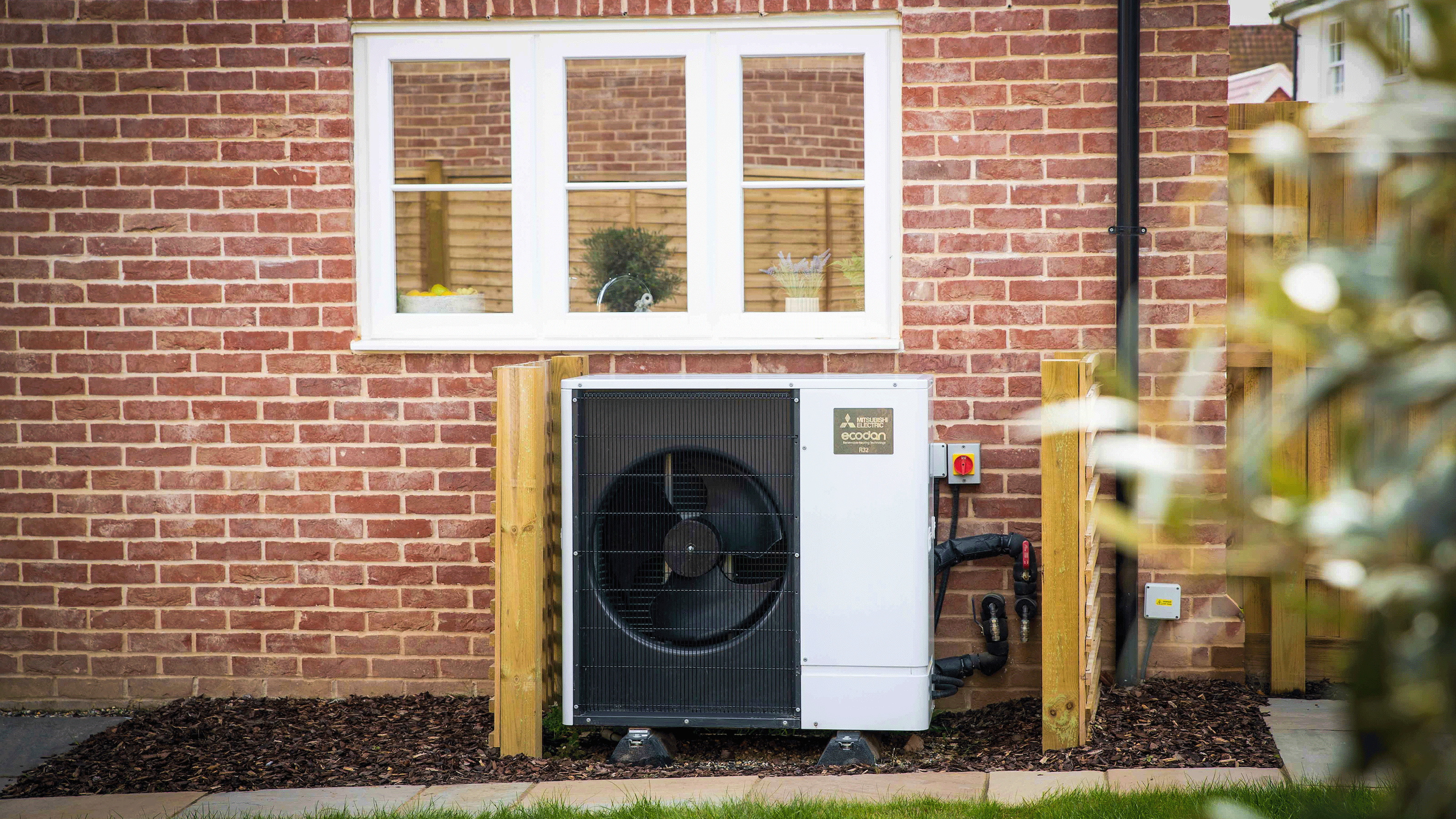
Air source heat pumps are ideal for most homes in the UK. They’re a green alternative to gas boilers for your heating and hot water. You can expect to save money on your energy bills and get a Government grant to help with the cost.
A heat pump also lets you move away from reliance on fossil fuels. With gas prices on the rise, it’s a win-win to save money and cut carbon emissions.
What is an air source heat pump?
These work like an aircon unit in reverse, so you have a unit outdoors (about the size of a washing machine) to collect heat and another indoors. You also need an indoor hot water storage tank, so if you have a combi boiler right now, you’ll need to find a bit of extra space (like an airing cupboard).
'Air source heat pumps are suitable for many types of home and are the most common type of domestic heat pump, representing about 80% of UK installations,' says Ben Whittle, Senior Consultant for Low Carbon at Energy Saving Trust. 'You will need a place outside where a unit can be fitted to a wall or placed on the ground with space around it to allow good flow of air.'
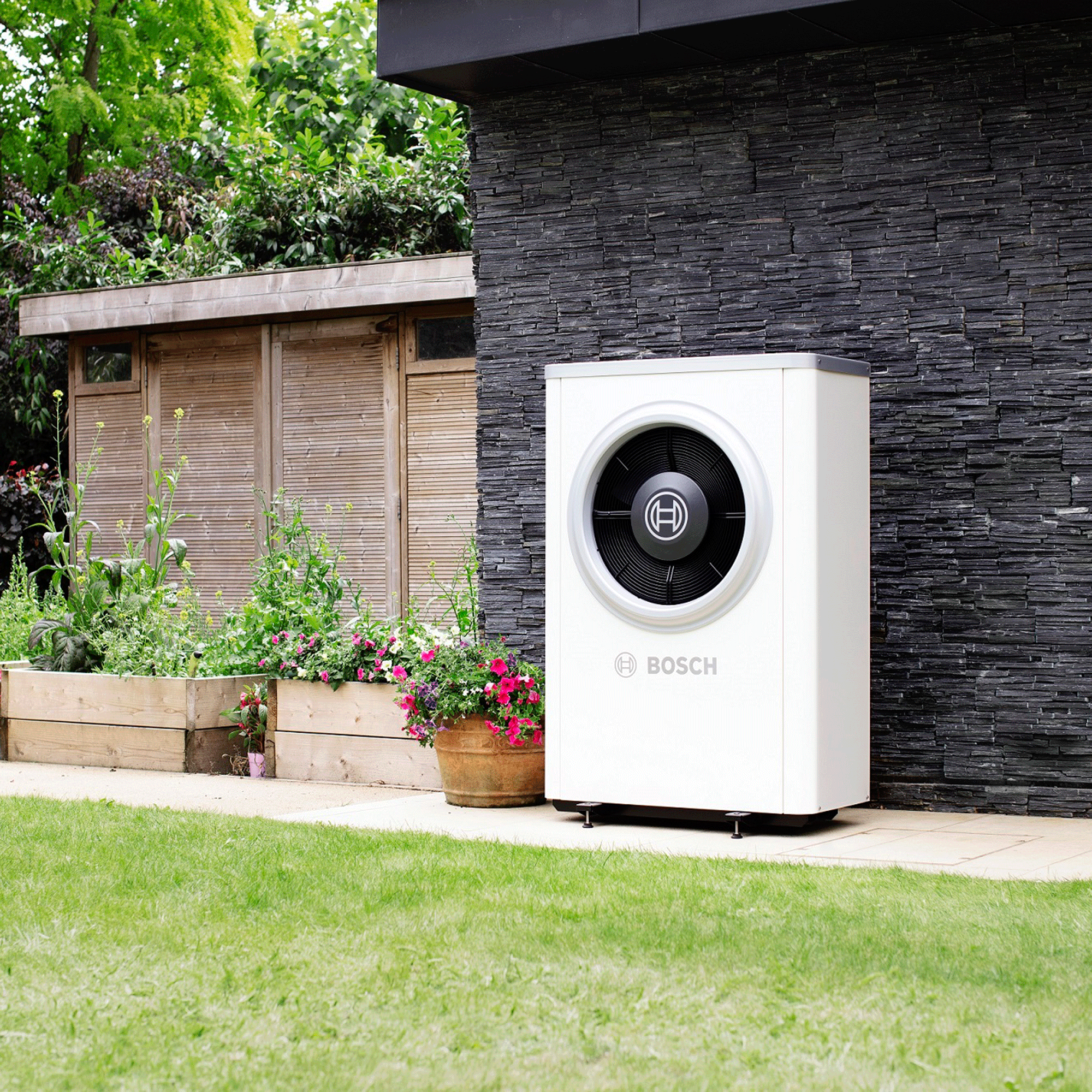
How do air source heat pumps work?
Put simply: a heat pump works a lot like the technology in a fridge (or an aircon unit), that compresses and expands a refrigerant, to make one place warmer and another cooler.
The important thing to know is that heat pumps are powered with electricity and are very efficient. In fact, they can be more than five times as efficient when it comes to heat pump vs. a gas boiler.
'Heat pumps can achieve efficiencies of 500% or more, providing 5kW of heat for every 1kW of electricity,' says Lee Hermitage, EMEA Marketing Director for Honeywell Advanced Materials, which makes refrigerants used in heat pumps. 'A new gas boiler operates at about 90% efficiency only, producing less than 1kW of heat per unit of gas.'
Sign up to our newsletter for style inspiration, real homes, project and garden advice and shopping know-how
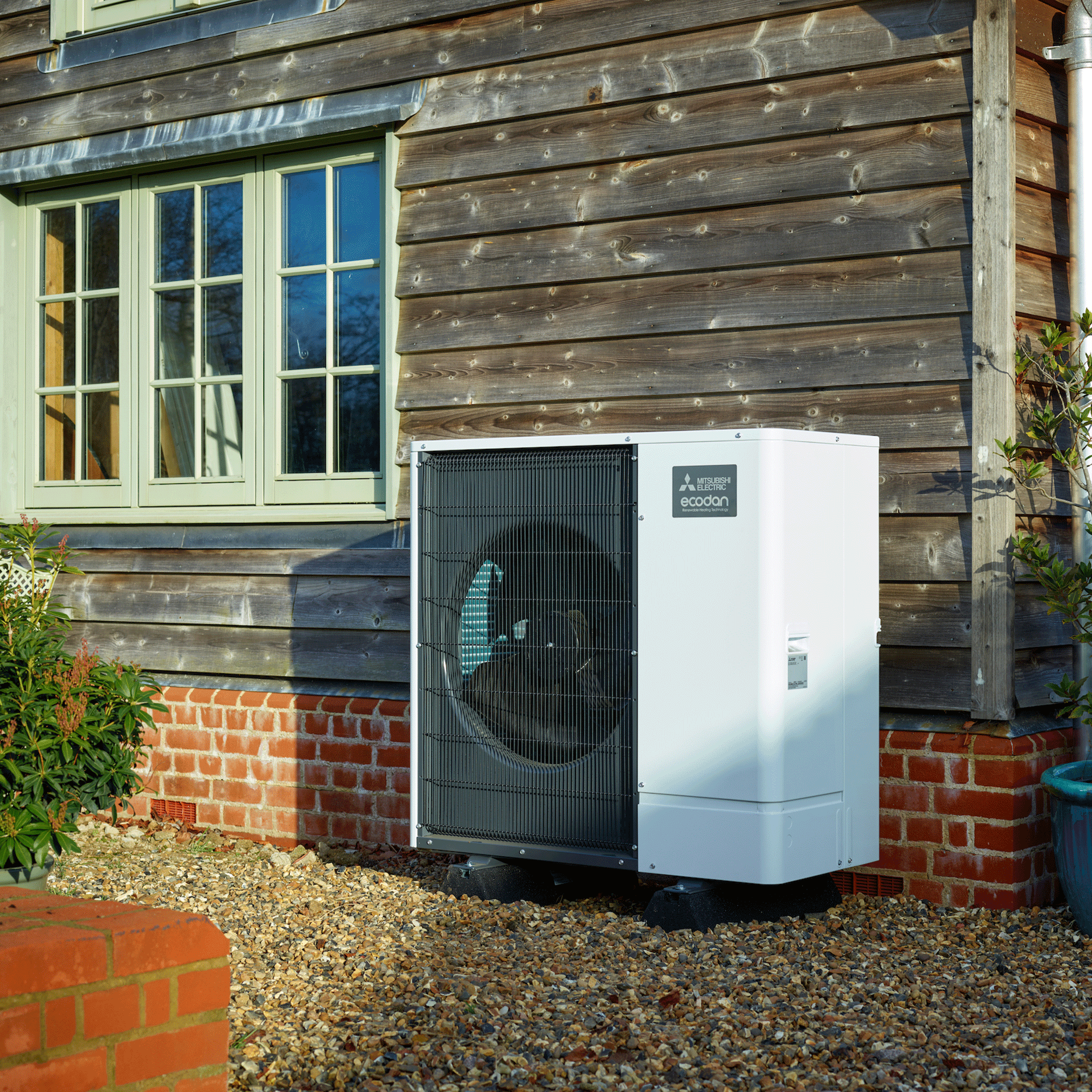
This means that you should save on energy bills, even taking into account the fact that gas is much cheaper than electricity. And because gas is a finite resource (and a fossil fuel), its price is likely to rise further. Meanwhile, electricity prices should be stable and ultimately go down as we get ever better at generating it from sun, wind and waves. So your savings should increase in years to come.
Heat pumps can work in any UK temperature, taking heat from outdoors even when it’s cold. For example, the Daikin Altherma 3 H HT air source heat pump delivers heat and hot water, even in temperatures as low as -28°C.
What types of air source heat pump are there?
Air-to-air heat pumps
Air-to-air heat pumps aren’t covered by the BUS grant scheme because they don’t replace your gas boiler. Instead these units are very much like an aircon unit in reverse, so a wall-mounted indoor unit puts out warm air. You don’t need radiators or a hot water tank. They are worth knowing about though if you just have a small space, like a studio apartment, to heat. You’ll need a different solution for hot water though.
Air-to-water heat pumps
Air-to-water heat pumps are what this article focusses on. These take heat from outdoors into your home to heat a well-insulated tank of water. This tank serves your home’s hot water needs and also heats the water in your central heating system. So it replaces your gas boiler.
What about monobloc vs split designs?
There are two different types of (air-to-water) air source heat pumps: monobloc and split systems. Basically, heat has to be transferred from the refrigerant to the water somewhere. So the only question is whether the pipes of refrigerant go into the house or the pipes of water go out of the house. This affects the size of the two units and what skills the engineer who fits it needs.
'A monobloc system has all the components in a single outdoor unit, with pipes carrying water to the central heating system and a hot water cylinder inside your home. A split system separates the components between indoor and outdoor units. Whether a monobloc or split system is right for you will depend on your budget and the space available. Split systems can offer a slightly increased efficiency and therefore lower running costs,' says Ben Whittle.
'In the UK, monobloc units are the most popular of the two designs as many heating engineers don’t carry the correct certifications to work with refrigerant gases,' says Steve Alldritt, Technical Director at Energy Efficiency at City Plumbing .
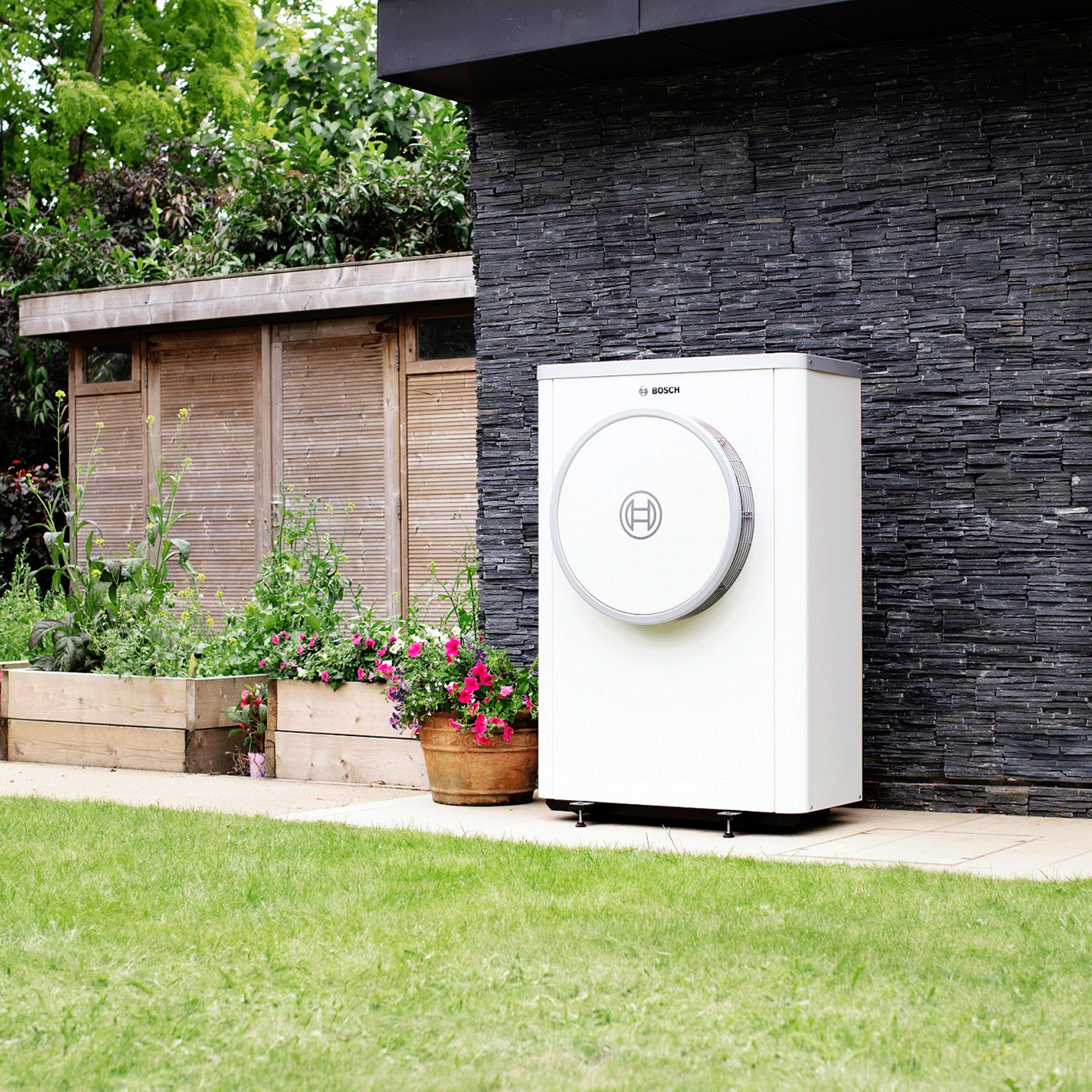
What are the advantages of an air source heat pump?
- Very efficient: save on energy bills
- £5,000 BUS grant to reduce cost significantly
- Should pay for itself within years, not decades
- Ideal replacement when gas boiler’s at end of life
- No digging
- Long life, long guarantees, low maintenance
- Works well with smart controls for consistent room temperatures, not 'boom and bust'
- Carbon neutral if you use 100% renewable electricity
What are the disadvantages of an air source heat pump?
- Costs more than a gas boiler, even after the £5,000 BUS grant
- Less efficient than ground source heat pump
- Requires space outdoors, about the size of a washing machine
- Requires space indoors for a hot water tank (the size of a fridge freezer)
- Check whether your insulation and radiators are good enough first
- Lower operating temperature than a traditional boiler, so slower to heat the space
How much does an air source heat pump cost?
The cost of the actual heat pump alone is pretty meaningless without factoring in installation. Most manufacturers put the figure for buying and installing an air source heat pump at £8,000 plus. That’s if you don’t have to make mega changes to your heating system or insulation.
'The cost of installing an air source heat pump ranges from £8,000 to £15,000 in most cases,' according to Ben Whittle of Energy Saving Trust.
Take off the £5,000 BUS grant, then, and the bill might be £3,000 to £10,000. At the lower end, that’s comparable with fitting a new gas boiler. You should instantly benefit from savings on bills and you should save more in future. Use renewable electricity (whether that’s from a 100%-renewable tariff or a solar panel on your roof) and it’s also carbon neutral, unlike gas, which is a fossil fuel.
Octopus Energy is an energy supplier that offers 100% renewable electricity and some clever, flexible tariffs like Agile Octopus that work well with heat pumps, electric vehicles and more. On some of its tariffs, the price of electricity varies through the day, with predictable peaks and troughs depending on supply and demand. For example, the price is higher at breakfast and tea time when everyone’s using it. So instead use it when it’s cheap.
If you think of your hot water cylinder as a battery storing energy, you recharge it (set the smart controls to trigger the heat pump to warm the water) when electricity is at its cheapest.
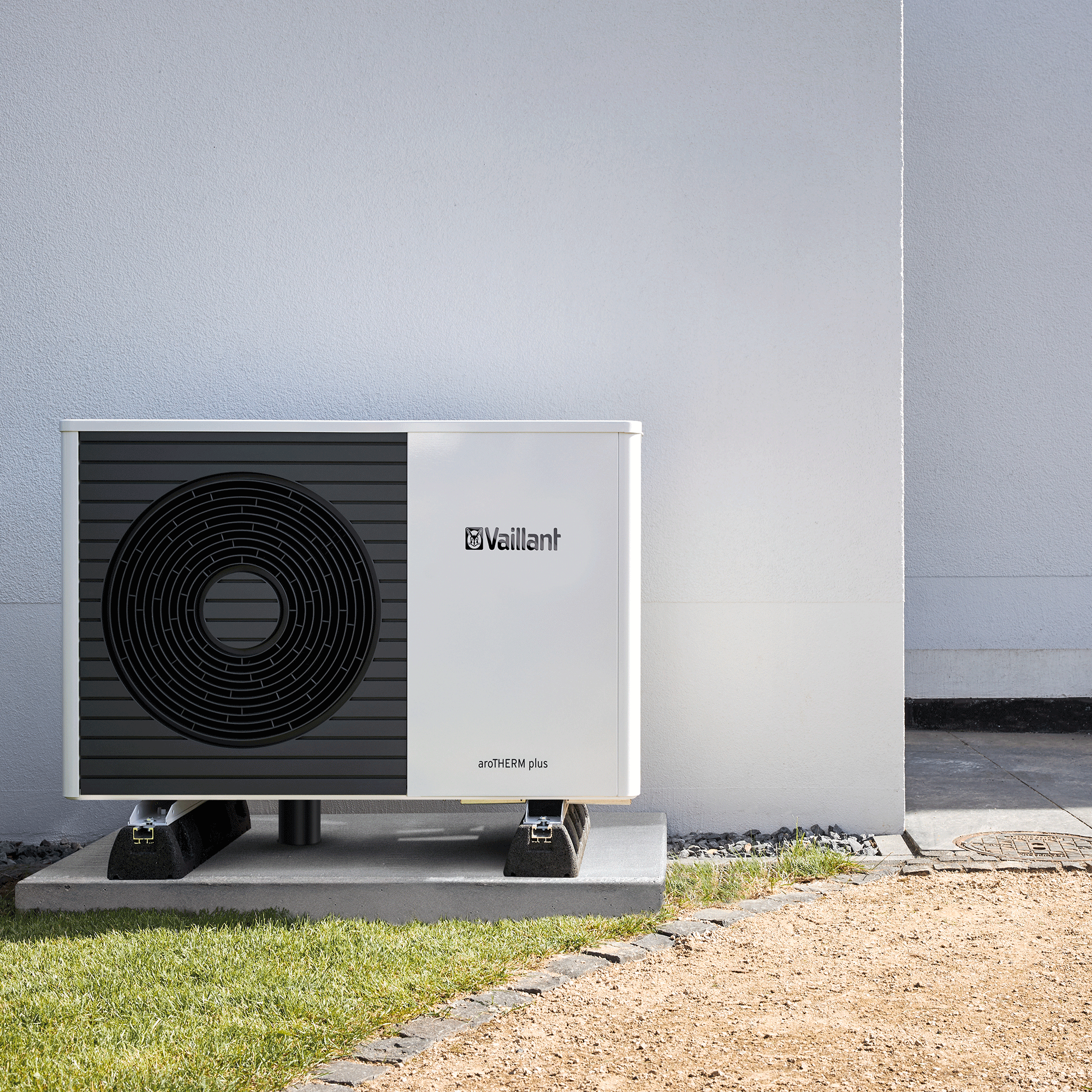
Octopus Energy is so convinced of the growing air source heat pump market that in 2021 it built the UK’s first heat pump research, design and training centre in Slough. It owns its own heat pump manufacturer and is training a network of 1,000 engineers a year to install them.
It says it’s focused on the 'low-hanging fruits' first, the two- to four-bed detached, semi-detached and large terraced homes from the 1930s to 1990s that it says are heat pump ready (that’s around 40% of the UK’s housing stock).
'Now we just need to make them cheaper to buy too. Octopus Energy is already installing heat pumps at typical UK homes for under £7,500. With the government’s new £5,000 grant, a heat pump can cost customers around £2,500,' says Rebecca Dibb-Simkin, Chief Product & Marketing Officer at Octopus Energy.
'It takes time to scale but demand is there – more than 15,000 people have already joined our heat pump waiting list. As more and more heat pumps roll out of our warehouses, prices will drop further, and soon we won’t need subsidies anymore.'
How much does an air source heat pump cost to run and maintain?
'Warranties for heat pumps vary – five to seven years is typical,' says Ben Whittle. 'Ask your installer for written details of any other maintenance checks you should undertake to ensure everything is working properly. Maintenance costs should not be significantly different to a gas boiler and some very basic checks can be done by the homeowner – however, it is worthwhile checking the conditions of the manufacturer to ensure compliance with any warranty terms.”
He adds that energy bills should go down slightly right now. More so if your gas supply can be capped off – removing the need to pay for the gas standing charge.
'Like a gas boiler, we recommend an annual service of your heat pump,' says John Gilham, Group Technical Manager at Green Building Renewables. 'However, heat pumps often require very little maintenance and you can easily expect it to last for 20-30 years. A typical service of an air source heat pump could cost you between £150-200. They are a low-maintenance heating technology when compared to traditional gas or oil-fuelled boilers.'
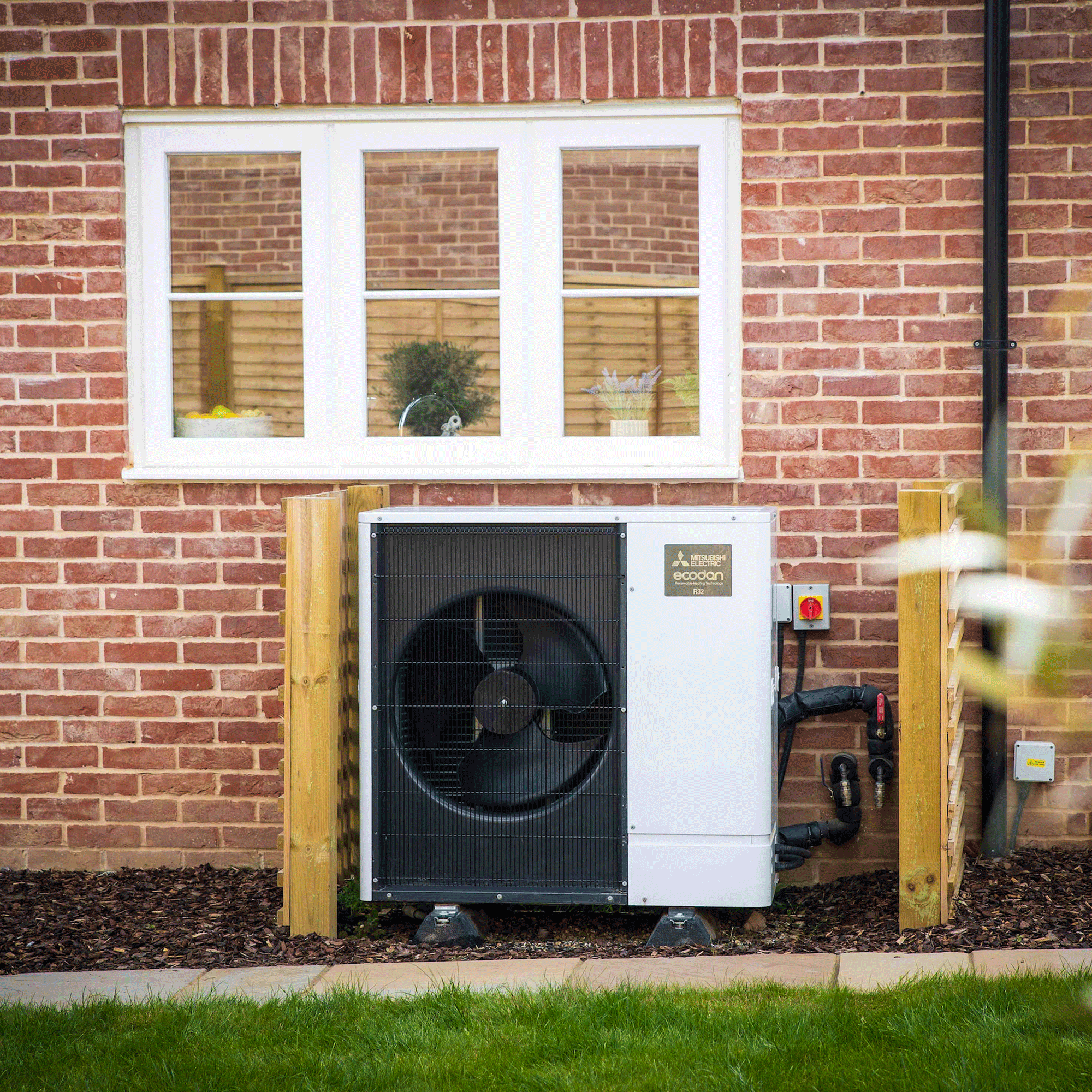
Do I need planning permission?
'Air source heat pumps usually fall under permitted development throughout most of the UK and do not require planning permission,' says Ben Whittle. 'If you live in a national park or have a listed building, it’s worth checking the requirements with your local planning office first. Rules are applied slightly differently in each UK nation, so check the most appropriate source for guidance.'
Noise is not a big concern. The pump doesn’t run all the time but, when it’s on, it sounds similar to a fridge.
Is an air source heat pump worth it?
'This depends upon your approach to the world and its challenges,' says Russell Dean, Head of Residential Heating & Ventilation at Mitsubishi Electric, which makes A+++ rated Ecodan air source heat pumps.
'However, if you wish to heat your home in a more sustainable way then the answer is an unquestionable yes. Heating our homes in a traditional way means that we are releasing a significant amount of carbon emissions when it is not necessary. Heat pumps are a futureproofed, reliable and cost-effective means to heat your home and will significantly reduce your carbon footprint.'

Caramel Quin is an award-winning journalist and professional nerd who tests technology for newspapers, magazines and online. She has written for Ideal Home since 2012. She prides herself on real-world testing and translating geek speak into plain English. Her pet hates are jargon, pointless products and over-complicated instruction manuals.